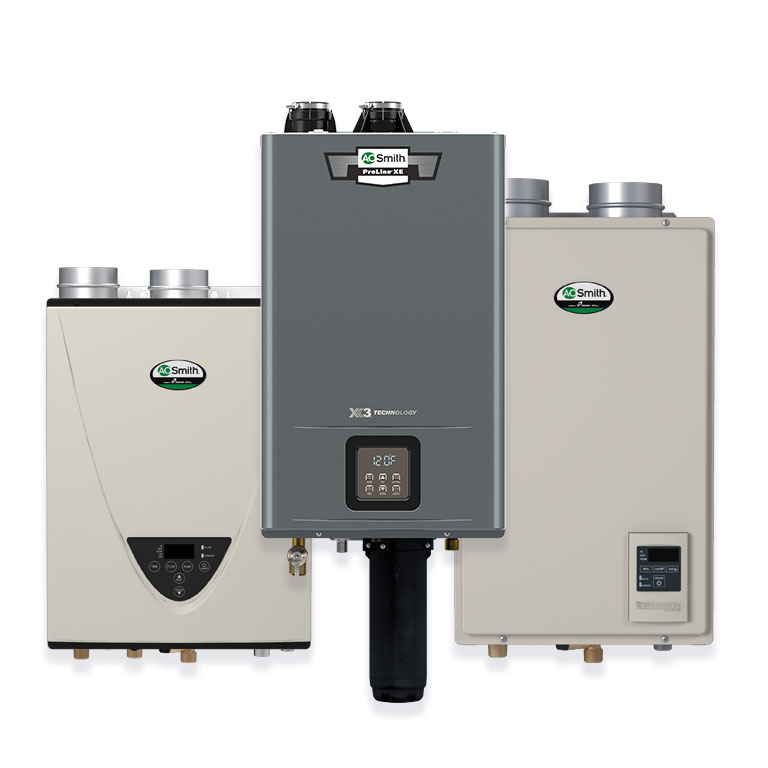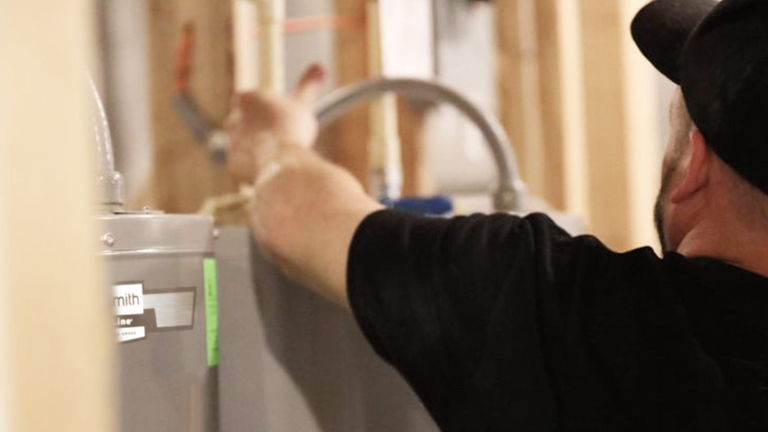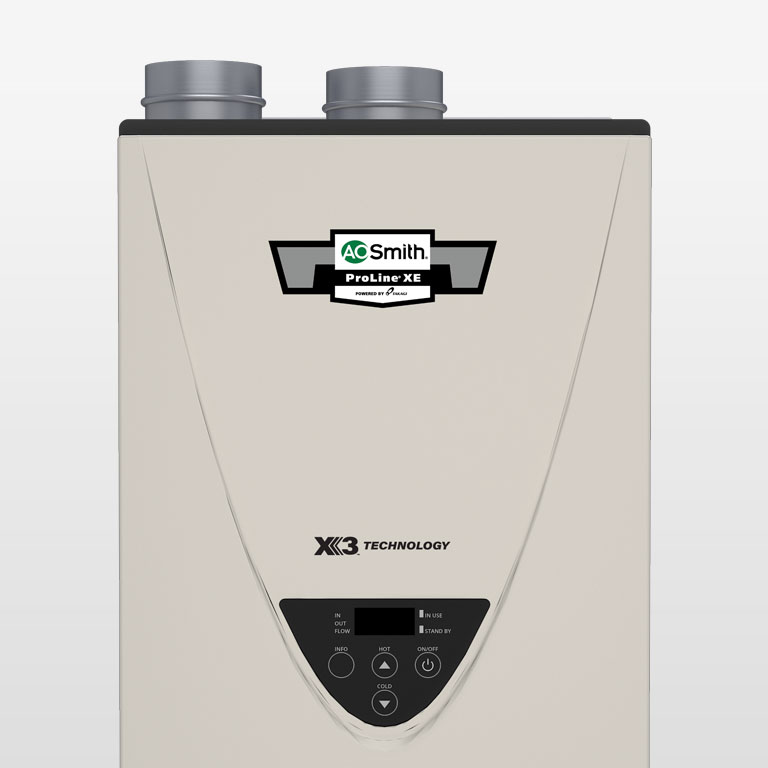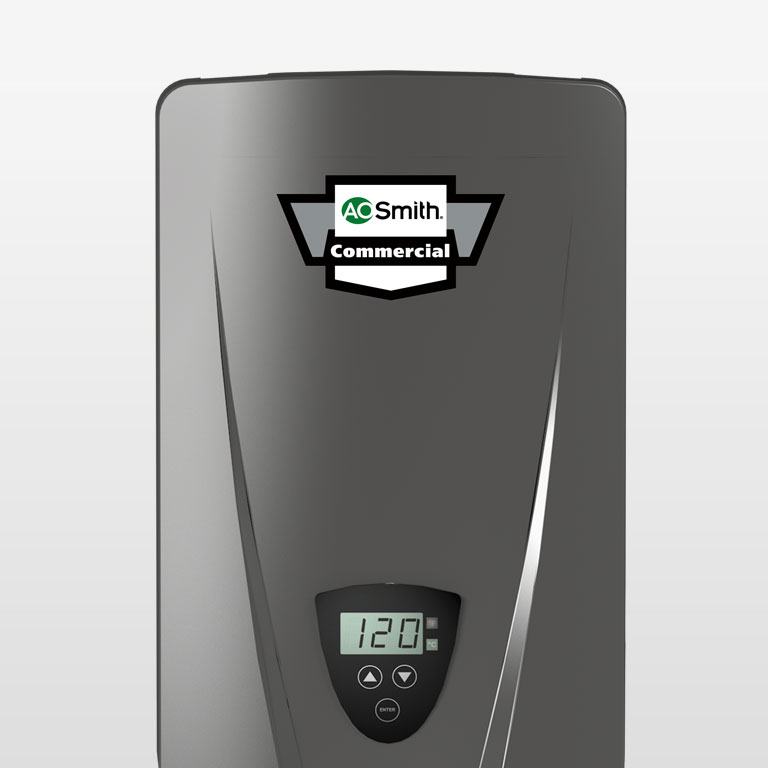)_tankless.jpg?cx=1265&cy=0&cw=468&ch=625)
How Much Does a Tankless Water Heater Cost?
Table of Contents
Tankless water heaters are gaining popularity with homeowners looking to upgrade their systems, and for many good reasons. These efficient and dependable systems heat water on demand, resulting in less stress on the system. They also offer improved efficiency and generate a constant supply of hot water. What's more, because they don't require a tank, they take up less space and with ideal water conditions and the addition of either the X3 or product preserve, do not need as much maintenance as a tanked system
If you're wondering about tankless water heater cost or where to purchase a dependable system, read on to discover what you can expect to pay and how to go about choosing a tankless water heater that meets your specific needs.
What Is a Tankless Water Heater?
Tankless water heaters, also known as endless water heaters, heat water directly without the need for a separate storage tank. As soon as the hot water tap is turned on, cold water travels into the unit, where it's heated by a gas burner or electric element, depending on the system's primary fuel source. This means you'll have a constant hot water supply throughout the day, eliminating the need to wait for a storage tank to refill with hot water. It also means you can kiss goodbye to lukewarm showers.
If you're currently depending on an old tank water heater, and energy and repair costs are spiking, it could be time to consider upgrading to an efficient tankless system. While tankless water heater installation costs may seem high in comparison to a new tank system, the benefits speak for themselves.
How Does It Differ From a Traditional Tank Water Heater?
Tankless water heaters differ from traditional tank water heaters in several ways and offer a range of features and benefits that tank systems don't.
- No Tank: Unlike traditional water heaters, tankless models don't store hot water in a tank, reducing the risk of leaks and tank corrosion over time.
- Much Smaller: They're considerably smaller in size, providing more flexibility in terms of installation locations. This means you can reclaim the space used by a tank system and gain more freedom over where you have your water heater installed.
- Less Maintenance: While tankless water heaters may have more pieces, tankless water heaters often require less upkeep. However, regular tune-ups are still needed to keep your system in great shape.
- Higher Initial Cost With Lower Utility Costs: The initial cost of a tankless water heater vs. a tank unit is typically higher, but this is offset by lower operating expenses.
- Higher Efficiency Leads to Savings in the Future: Thanks to their on-demand operation, they're more energy-efficient, leading to potential savings on utility bills over time.
What Are the Pros and Cons of Tankless Heaters?
Pros:
Energy Efficiency, Lower Annual Costs Compared to a Tank
Tankless water heaters are more energy-efficient than traditional tank models, as they only heat water when it's needed. This efficiency translates to lower annual operating costs and environmental benefits. If you're currently depending on an old and inefficient tanked system, a tankless water heater can make a huge difference to your comfort, convenience and energy costs.
Performance
Tankless water heaters provide a continuous supply of hot water, ideal for families or situations where hot water is in high demand. If you're fed up with being the last one to the shower every morning and making do with lukewarm or even cold water, tankless systems solve this problem with a constant supply of piping hot water.
Reliable & Long-Lasting
Tankless heaters typically have a longer lifespan than tank heaters, often lasting up to 20 years or more. Regular maintenance will ensure you get the best return on your investment over the lifetime of your system.
Space Saving/Compact
Their compact size frees up space in the home compared to bulky tank heaters, making them ideal for smaller homes or apartments.

Ease to Use and Maintain
With fewer parts and no tank, tankless water heaters are generally easier to maintain and have fewer issues related to sediment build-up.
Safety
Tankless water heaters often come with safety features that reduce the risk of overheating and pressure build-up.
Easy to Winterize
For homes in colder climates or vacation properties, tankless heaters are easier to winterize to prevent freezing.
In summary, tankless hot water heaters offer a modern, efficient and space-saving solution for providing hot water in a home. While they have a higher initial cost, their energy savings, performance and long-term reliability can make them a worthwhile investment.
Cons:

Higher Initial Cost Compared to Tank Systems
One of the biggest drawbacks of tankless water heaters is their higher initial purchase price compared to tank systems. While their improved energy efficiency will lead to long-term savings on maintenance and energy, the upfront cost may be a barrier for some homeowners. However, this upfront cost is often offset by the longer life span and lower running expenses of the system over time.
Cost of Renovations/Remodeling/Retrofitting/Installation
Installing a tankless water heater can be more complex and costly, especially if you're replacing a tank system. For example, upgrades may need to be carried out to your electrical system, gas line or venting system to accommodate the new tankless unit. Also, if the location of your system needs to be changed, significant renovation work may be required. All of these factors could push up the initial cost to install a tankless water heater.
Factors That Affect the Cost of a Tankless Water Heater
Several factors can influence the cost of a tankless water heater. Being aware of these can help you to make an informed choice that fits your needs and budget.

Type of System
Single Point vs. Whole House
Single-point systems are designed to provide hot water to a specific location, like a bathroom or kitchen sink, and are generally less expensive. Whole-house systems generally gas, capable of supplying hot water to multiple fixtures simultaneously, are more costly due to their larger capacity and complexity. Which you choose will largely come down to your personal preference and budget.
Commercial vs. Residential
Commercial tankless water heaters are designed for high demand and durability, making them more expensive than residential models, which are scaled for the typical needs of a household.
Power Vent vs. Direct Vent
Power vent models use an electrically powered fan for venting and are typically less expensive but require specific installation conditions. Direct vent models, on the other hand, use natural airflow for venting and can be more costly due to their installation flexibility.

Fuel Source
Different fuel sources can affect both the upfront cost and the operational efficiency of the water heater.
Gas
Gas tankless water heaters, using either natural gas or propane, are typically more expensive to install, especially if gas lines need to be extended or upgraded. However, they can be more cost-effective in terms of operational expenses, depending on local gas prices.
Natural Gas vs. Propane
The choice between natural gas and propane will depend on availability and cost in your area. Propane units might require additional storage tanks if propane isn't piped to your home.
Electric
Electric tankless water heaters costs are generally less expensive to purchase and install than gas models but might have higher operational costs, depending on electricity prices in your area. They're often a good choice for smaller households or in regions where gas isn't readily available.
Other Costs
When planning to invest in a tankless water heater, it's important to look beyond the price tag of the unit itself. The total price of installation includes a range of additional expenses that can significantly affect your budget. It's essential to understand these costs so you can make the right decision and ensure your investment aligns with your available budget.

Delivery and Complexity of Installation
The cost of delivering and installing a tankless water heater can vary greatly. If you're converting from an electric to a gas system, for instance, the installation may involve adding gas lines, which can be complex and pricey. Similarly, modifying existing gas lines to accommodate a tankless system can add to the expense.
Removal of the Old Heating System
Removing and disposing of your old water heating system can add to the overall costs. This may involve not only labor but also fees for proper disposal, depending on the system's type and size.
Electrical Updates
If you're installing an electric tankless water heater, your current electrical system may need upgrades to handle the new unit's power requirements. This can include upgrading the electrical panel or adding new circuits, both of which can be costly.

Insulation
Properly insulating hot water pipes is essential for maximizing the efficiency of a tankless water heater. While this adds to the initial cost, it can lead to energy savings over time.
Structural Modifications/Remodeling
Depending on the installation location and the type of tankless water heater, structural modifications or remodeling may be necessary. This could include creating venting for gas models or making space in a tight area.
Pressure Regulator Replacement
In some cases, the water pressure may need to be adjusted to suit the new tankless water heater, requiring the installation or replacement of a pressure regulator.
Tax Credits (Reduces Cost)
In some regions, you may qualify for tax credits or rebates for installing energy-efficient tankless water heaters. These incentives can significantly reduce the overall cost of installation.
How to Choose the Right Tankless Water Heater for Your Needs
Choosing the right tankless water heater involves considering your household's size, the demand for hot water, fuel types and installation logistics. It's crucial to select a model that not only fits your immediate needs but also aligns with your long-term energy usage and budget goals.
For a more tailored selection, use resources like our water heater selector tool. This tool can help you identify the best options based on your specific requirements and preferences.
Whether you choose a gas tankless water heater or an electric tankless hot water heater, you can be sure your new system will give you many years of dependable use.